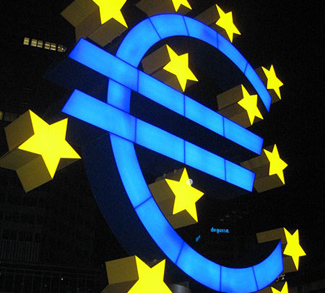It is Greece against the Troika of the IMF, the EU, and the European Central Bank. The election on January 25th is only the beginning of Greece’s problems; voters are not prepared to grant to any one party the power to implement policies that will satisfy the people at home and creditors abroad.
Prime Minister Antonis Samaras gambled and lost. Nominating a new candidate for the figurehead presidency of Greece should have been a simple matter that would have passed with little conflict, except that it was seized on by the opposition as a chance for a vote of no confidence. By failing to confirm the new candidate, it forced the prime minister to call a national election in the midst of widespread discontent.
Now, as Antonis Samaras and Alexis Tsipras seek to sway Greek voters, the real subject of political skirmishing is Chancellor Angela Merkel. Whoever wins the approval of the electorate will have to win the approval of the Iron Lady in Berlin.
Neither candidate is showing enough support to form a majority government. Alexis Tsipras seems to be ahead, but the gulf between the two is too narrow to be a certainty; and the uncertainty is reflected in an outflow of funds from Greek banks.
According to Euro Bank and Alpha Bank, as much as seven billion euros have been withdrawn since the January election was called. The central bank has requested to have funds available should there be a run on the banks, with 364 billion euros on deposit.
If a government cannot be formed after January 25, another election will have to be called for March. That moves Greece beyond the date when a new loan is scheduled to be negotiated. Greece could face by the time of the second vote a true economic crisis, unless the ECB, the EU, and the IMF agree to keep the Greeks afloat temporarily.
Greek voters have a problem. Who are the candidates? Both are presenting many shades of gray; and who is Angela Merkel, who runs hot and cold? So many questions and so few answers.
While in opposition, Antonis Samaras had opposed any acceptance of the austerity programs imposed by the Troika. After he became prime minister, he submitted to the outside dictates and presided over a 25 percent decline in the economy, an overall unemployment rate over 25 percent, a 33 percent decrease in incomes, and even a 50 percent increase in the suicide rate not to mention a return of malaria.
He can boast of the first current account surplus since 1948 and a slight surplus in the GDP if interest payments are not included. A slight decline in the rate of unemployment is due mainly to the emigration of Greece’s young minds at the rate of thirty thousand per annum.
It is not the kind of record that a politician wants to use to attract voters. Alexis Tsipras has the advantage of not having held office so that he cannot be held responsible for any of the current situation.
He says that foreign markets will “dance to his tune.” What that tune will be is the true puzzle, because it changes daily.
His Syriza party was organized only a year and a half ago. It encompasses a broad spectrum of views from more modern to extreme left. Some observers are convinced that his more extreme comments will be moderated once he has his hands on the controls. With such a diversity of party members, it would not take much for some factions to rebel should he renege on his promises. In a parliament with coalitions held together by fragile relations, a revolt could force him to call an election far sooner than wanted.
His most extreme position is for Greece to leave the EU and to return to the drachma. Obligations to foreign creditors would be defaulted.
If this were 2012, the threat would send tremors throughout the financial community. German and French banks were holders of much of the Greek debt. Weaker banks in Spain and Portugal with Greeks holdings faced collapse in what would be a domino effect.
Since those high risk days, Greece has been reduced to an irritation for the financial community rather than a potential trigger for disaster. 240 billion euros in loans to Greek banks was employed to cover the debts. What the Greeks once owned to foreigners they now owe to themselves.
German banks have 23.5 billion euros in credit exposure to Greece. Most of that is held by the state-owned development bank KfW, with lending totaling 15 billion euros to the Greek state.
The EU has used the last four years to separate Greece from the EU body and to reduce it to an expendable appendage. With only one percent of the EU economy and two percent of the EU population, Greece is of little importance.
When it first adopted the euro at highly favorable rates in 2002, Germany in particular benefited as Greeks could afford to purchase more imported luxury goods. Today, the Greeks can scarcely afford basic medicines. They are no longer a stimulus to the German economy and no longer of importance to Angela Merkel, who cannot justify to her coalition in particular Bavarian partners why Germany should rescue Greece from its own recklessness.
Whether he understands the reality or not, Alexis Tsipras still speaks as if he is holding the cards. On some days, he speaks of negotiating so long as he does not have to compromise and is transforming a Greek problem in to a European one.
He has been seeking to recruit supporters from Left movements across the EU. He is offering Greeks higher pensions, free electricity, and other benefits while taxing the wealthy. The EU will be required to provide him with fifteen billion euros to finance his programs.
Underlying his programs is a revival of the socialist theme of class struggle. But it would seem that the Iron Lady doesn’t care. She has saved the German banks from their earlier free lending practices that jeopardized them. Having achieved that, she no longer worries about what a handful of Greeks are screaming.
What should be worrying Alexis Tsipras is not the Germans far away, but the colonels at home. A quarter of the Greek population supports the right-wing Golden Dawn movement, the Black Lily, and other extreme groups. They have members among the police and military.
The colonels have on a number of occasions over the years seized power. Their last effort proved to be a disaster for the country; but that was long ago, and there is no reason why a new generation might not decide to try again in the face of a Communist threat in the form of the Syriza party.
Like Tsipras, the extreme Right also favors taking Greece out of the EU and abandoning the euro. They have little sympathy for the foreign creditors who are blamed for breaking the Greek economy.
Only the middle seems to support continued membership in the Eurozone – and there is not much left of the middle class.




